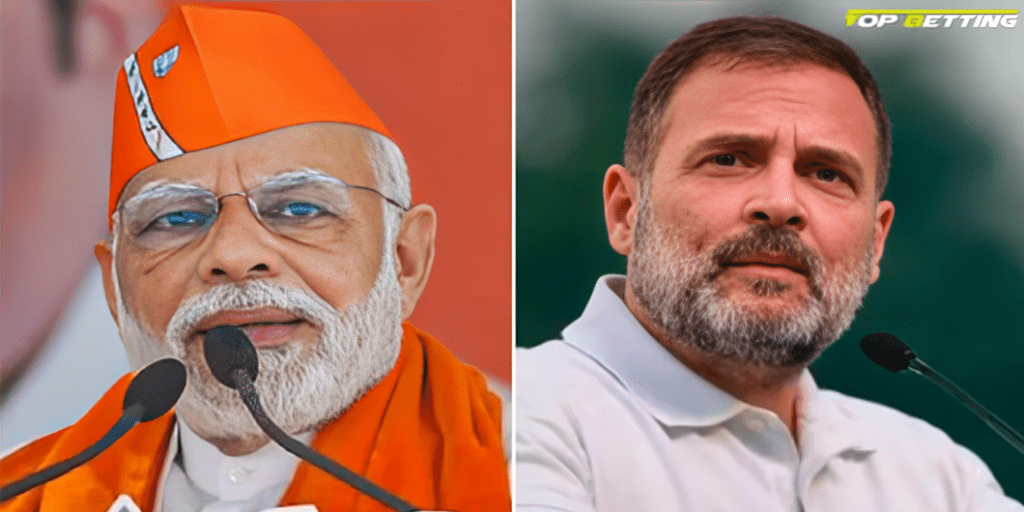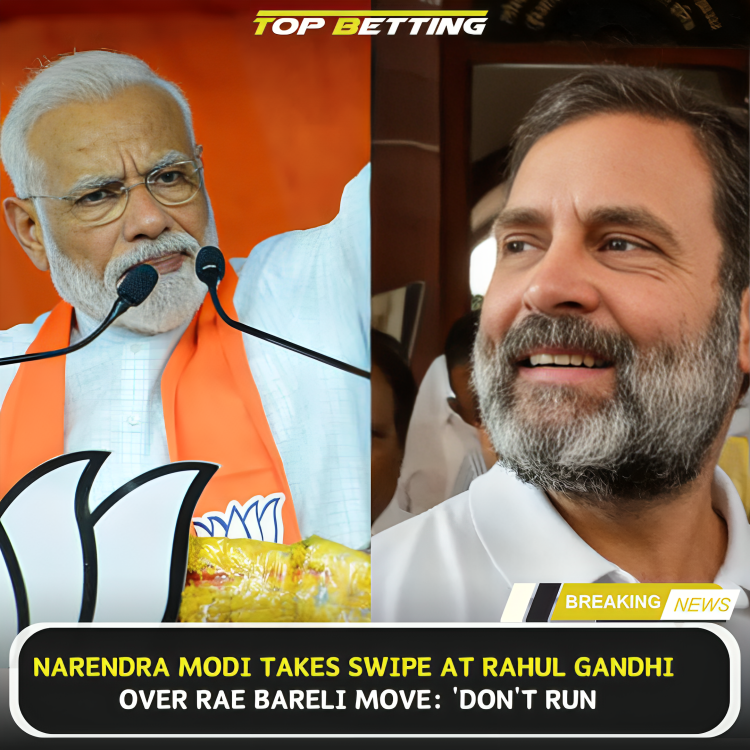
Narendra Modi takes swipe at Rahul
PM Modi challenged the Wayanad MP to take on the BJP in Amethi and not “run or be scared” while speaking at a rally in West Bengal.
In response to Rahul Gandhi’s nomination from the Rae Bareli Lok Sabha seat in Uttar Pradesh, Prime Minister Narendra Modi attacked the Congressman on Friday, claiming that Gandhi made the move out of fear of losing in Kerala’s Wayanad.
PM Modi challenged the Wayanad MP to take on the BJP in Amethi and not “run or be scared” while speaking at a rally in West Bengal.
Referencing an earlier statement, Prime Minister Modi stated that Rahul Gandhi had been looking for a safe seat for himself following his vote in Wayanad.
“I had already predicted that the Shehzada would not win in Wayanad. I had warned him that he would start hunting for a new seat as soon as the Wayanad polls were over. He is going in Rae Bareli’s direction because he is so terrified of Amethi. Everyone is asked, “daro mat.” “‘Daro mat, bhago mat’—don’t be scared, don’t run—is another thing I ask them today,” he continued.
In addition, Prime Minister Modi made fun of Sonia Gandhi, the mother of Rahul Gandhi, for giving up her seat in Rae Bareli and joining the Rajya Sabha.
“I had already declared in the legislature that the major leader of the Congress would not dare to run for office and would instead flee. “She fled to Rajasthan and made her way to the Rajya Sabha,” he continued.
Following much anticipation, Rahul Gandhi would run for Lok Sabha from Rae Bareli, the Congress declared today.
Kishori Lal Sharma, an Amethi supporter of Rahul Gandhi, will run for office.
Rahul Gandhi, a native of Amethi, entered political politics in 2004. In 2004 and 2009 and 2014, he was elected. But when Smriti Irani defeated Gandhi in the UP seat in 2019, she managed to penetrate the formerly invincible citadel.
The late Prime Minister Rajiv Gandhi, who served as Amethi’s MP from 1981 until his death in 1991, was the father of Rahul Gandhi. In 1999, Sonia Gandhi served as the constituency’s representative in the Lok Sabha.
It was previously suggested that Priyanka Gandhi Vadra might run for parliament from her mother’s seat.
In the realm of Indian politics, verbal jousting and rhetorical maneuvers are as commonplace as the changing seasons. Recently, Prime Minister Narendra Modi aimed his verbal artillery at his perennial adversary, Rahul Gandhi, over a strategic political move in Rae Bareli. The Prime Minister’s choice of words, “Don’t run…write,” encapsulates not only a pointed critique but also a deeper commentary on the dynamics of power, leadership, and communication in contemporary Indian politics.
At first glance, Modi’s statement appears to be a simple admonition, urging Rahul Gandhi to forsake physical pursuits and instead engage in the more cerebral activity of writing. However, beneath the surface, lies a tapestry of political implications and strategic messaging.
The choice of words, “Don’t run,” carries a dual connotation. On one level, it can be interpreted as a literal exhortation, advising Gandhi against fleeing from his responsibilities or challenges. However, in the context of Indian politics, where symbolism often holds sway, it can also be seen as a metaphor for avoiding accountability or evading tough questions. Modi, by employing this phrase, seeks to portray Gandhi as someone who shies away from the rigors of governance and leadership.
Conversely, the phrase “write” invokes notions of intellectual engagement, articulation, and policy formulation. By urging Gandhi to “write,” Modi implies that the realm of politics is not merely about rhetoric or theatrics but demands substantive contribution and intellectual rigor. It suggests that Gandhi should articulate his vision, policies, and plans through the medium of the written word, thereby presenting himself as a serious contender for leadership.
The reference to Rae Bareli adds another layer of complexity to Modi’s statement. Rae Bareli holds symbolic significance in Indian politics as the traditional stronghold of the Gandhi family. By mentioning Rae Bareli, Modi not only highlights Gandhi’s political roots but also subtly challenges his authority in this bastion of power. The implicit message is clear: if Gandhi wishes to assert his dominance in Rae Bareli or Indian politics at large, he must do so through concrete actions and substantive engagement, rather than mere rhetoric or symbolic gestures.
Furthermore, the use of a “swipe” in Modi’s statement underscores the adversarial nature of Indian politics, where political opponents often engage in verbal sparring and one-upmanship. It reflects the competitive ethos that permeates the political landscape, where every word and gesture is carefully calibrated to gain strategic advantage and undermine opponents.
In essence, Modi’s statement encapsulates a multifaceted critique of Rahul Gandhi’s political persona and strategy. It challenges Gandhi to rise above the realm of symbolism and rhetoric, and instead, demonstrate substantive leadership and intellectual engagement. Moreover, it underscores the competitive and adversarial nature of Indian politics, where every move is scrutinized and every word carries strategic significance.

As the political landscape continues to evolve, the verbal volleys between Modi and Gandhi are likely to persist, each aimed at gaining the upper hand in the relentless struggle for power and influence. In this high-stakes game of political chess, every word matters, and every move is fraught with strategic implications.
On May 20, Amethi and Rae Bareli will cast their ballots.











